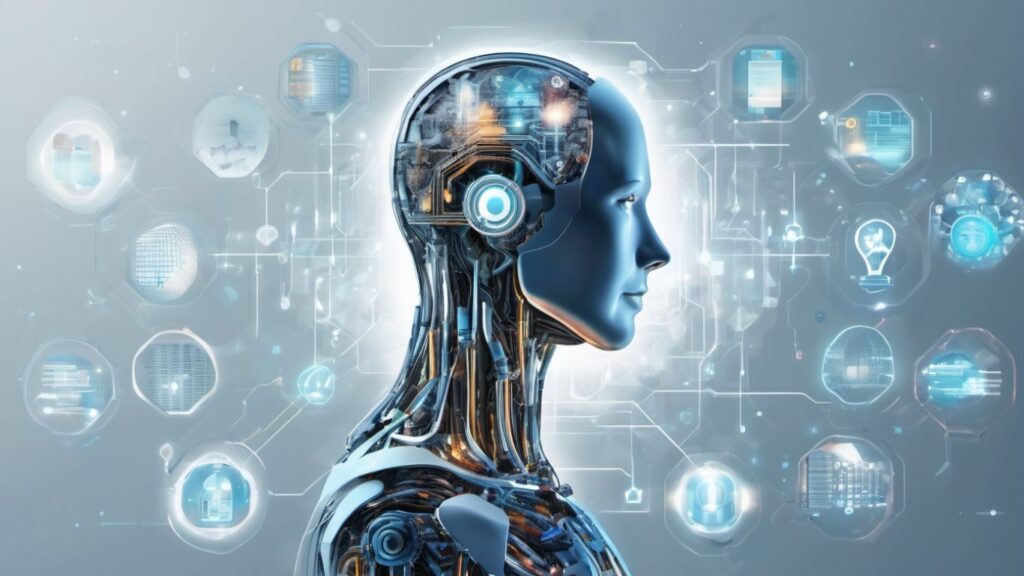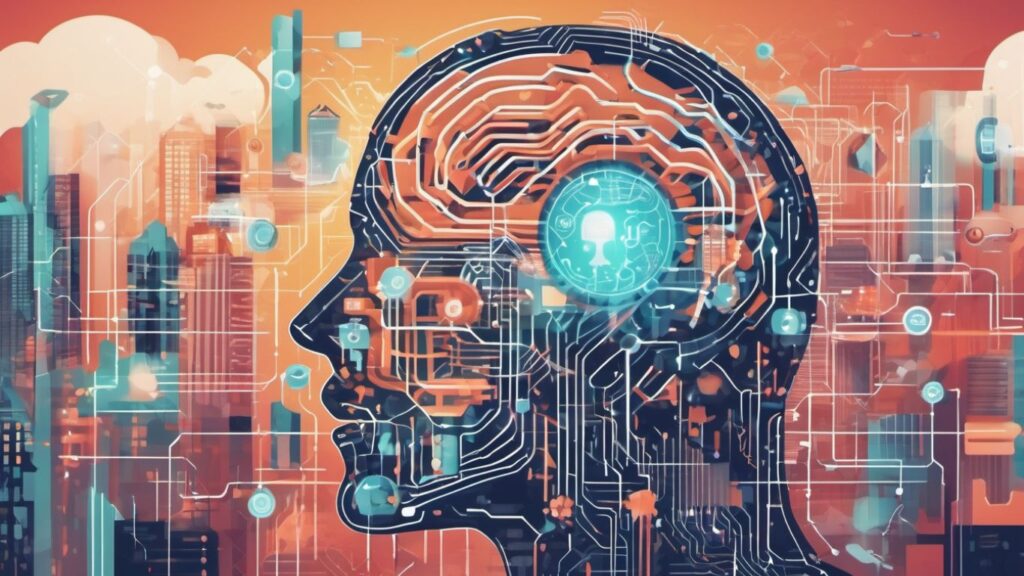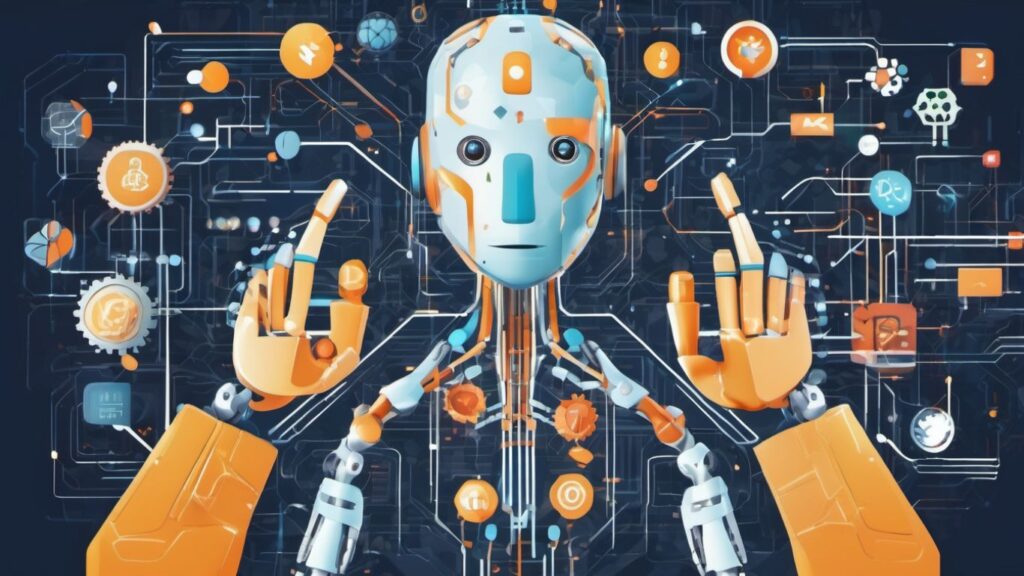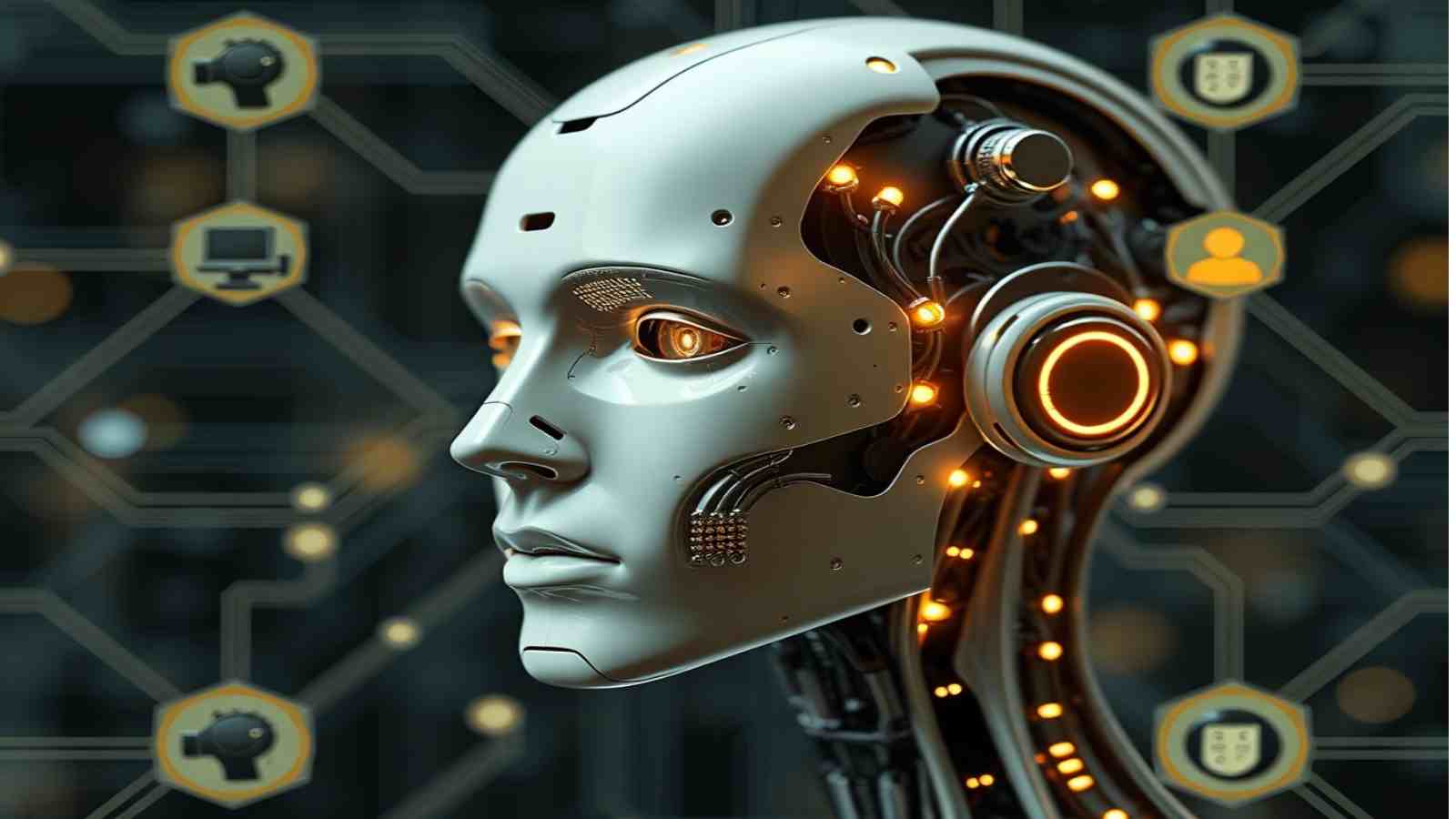Artificial Intelligence (AI) is revolutionizing our everyday lives in ways we might not even realize. From enhancing productivity to improving health and safety, AI’s impact is widespread and growing. This guide explores how AI can help us in our daily lives, focusing on personal assistants and health monitoring while also addressing ethical considerations and privacy concerns.
AI in Healthcare: Enhancing Diagnosis and Treatment
AI technology is transforming healthcare by providing tools for early detection and personalized treatment plans. Here are some key benefits:
Benefits:

- Early Detection: AI algorithms analyze data from wearable devices like the Apple Watch to detect health irregularities, prompting timely medical intervention.
- Personalized Healthcare Plans: AI tailors health recommendations based on individual data, leading to more effective treatments.
- Health Monitoring: Wearables track vital signs and provide real-time updates, helping users stay informed about their health.
Real-life Example:
Wearable devices such as the Apple Watch use AI to monitor heart health. The ECG feature can detect atrial fibrillation, a severe heart condition, and alert users to seek medical attention.
Privacy Concerns:
- Data Privacy: AI applications in healthcare must ensure data privacy and user consent. Regulations like GDPR and CCPA are essential in safeguarding personal information.
- Privacy-Focused Technologies: Technologies like federated learning allow AI to be trained on data without direct access, preserving user privacy.
AI in Smart Homes: Streamlining Daily Tasks
Smart home devices powered by AI make managing household tasks more efficient and personalized.
Benefits:

- Energy Efficiency: Systems like Nest and Ecobee learn user preferences and adjust home temperatures automatically, saving energy and reducing costs.
- Convenience: AI-powered devices can automate routine tasks like adjusting lighting, managing security systems, and controlling appliances.
- Enhanced Comfort: Personalized settings ensure maximum comfort, adapting to individual preferences seamlessly.
Real-life Example:
Nest thermostats use AI to learn your schedule and temperature preferences. They adjust settings automatically, ensuring your home is always at the perfect temperature while optimizing energy usage.
Personal AI Assistants
Virtual assistants like Siri, Alexa, and Google Assistant have become integral parts of our daily routines, helping us manage tasks and stay organized.
Benefits:
- Productivity Boost: AI assistants set reminders, manage schedules, and answer queries, freeing up time for more critical tasks.
- Enhanced Accessibility: Voice commands make technology more accessible, especially for individuals with disabilities.
- Continuous Learning: These assistants evolve with use, becoming more efficient and personalized over time.
Real-life Example:
Google Assistant can integrate with your calendar, email, and smart home devices, providing a seamless experience for managing daily tasks and staying connected.
AI in Transportation: Improving Efficiency and Safety
AI is driving innovation in transportation, making travel safer and more efficient.
Benefits:
- Traffic Management: AI analyzes traffic patterns to optimize routes and reduce congestion.
- Safety Enhancements: Autonomous vehicles use AI to detect obstacles and prevent accidents.
- Fuel Efficiency: AI systems optimize fuel consumption, reducing environmental impact.
Real-life Example:
Tesla’s Autopilot system uses AI to assist with driving tasks, improving safety and efficiency on the road.
AI in Education: Personalized Learning Experiences
AI is revolutionizing education by providing personalized learning experiences that cater to individual student needs.
Benefits:
- Customized Learning Plans: AI analyzes student performance to create tailored educational experiences.
- Real-time Feedback: AI-powered tools provide instant feedback, helping students improve faster.
- Access to Resources: AI-driven platforms offer a wealth of educational materials, making learning more accessible.
Real-life Example:
Platforms like Khan Academy use AI to personalize learning experiences, adapting content to meet the unique needs of each student.
AI in Customer Service: Enhancing User Experience
AI is transforming customer service by providing efficient and personalized support.
Benefits:

- Instant Support: AI chatbots handle customer queries 24/7, providing immediate assistance.
- Personalized Recommendations: AI analyzes customer data to offer tailored product and service recommendations.
- Improved Satisfaction: Faster response times and customized support enhance overall customer satisfaction.
Real-life Example:
Amazon uses AI to recommend products based on your browsing and purchase history, creating a personalized shopping experience.
Ethical Considerations of AI Implementation
While AI offers numerous benefits, ethical considerations must be addressed to ensure responsible use.
Key Ethical Considerations:
- Privacy Concerns: Ensuring data privacy and user consent in all AI applications.
- Social Inequality: Preventing AI from exacerbating existing social inequalities, including access to services and employment opportunities.
- Algorithm Transparency: Providing transparency in AI decision-making, particularly in critical areas like healthcare and finance.
- Responsible Use: Ensuring AI is used ethically in warfare, surveillance, and law enforcement, aligning with human rights and international law.
- Preventing Misuse: Developers and users must prevent AI from being used for malicious purposes or spreading misinformation.
Frequently Asked Questions (FAQs)
What is Artificial Intelligence (AI)?
Artificial Intelligence (AI) refers to the simulation of human intelligence in machines that are programmed to think and learn like humans. These systems can perform tasks that typically require human intelligence, such as visual perception, speech recognition, and decision-making.
How is AI used in everyday life?
AI is utilized in various aspects of daily life, including personal assistants like Siri and Alexa, recommendation systems on platforms like Netflix and Amazon, and smart home devices that automate household tasks. It also plays a crucial role in healthcare, transportation, and customer service.
What are the benefits of AI in healthcare?
AI offers numerous benefits in healthcare, such as improved disease diagnosis, personalized treatment plans, real-time health monitoring through wearable devices, and efficient data management. It enhances the overall quality of care and operational efficiency.
Are there privacy concerns associated with AI?
Yes, there are significant privacy concerns related to AI, especially regarding the collection and use of personal data. Ensuring that AI applications comply with data privacy regulations like GDPR and CCPA is crucial to protecting user information and maintaining trust.
Can AI replace human jobs?
While AI can automate many tasks, leading to job displacement in specific sectors, it also creates new job opportunities in AI development, maintenance, and other fields. The focus should be on reskilling and upskilling the workforce to adapt to evolving job markets.
What are the ethical considerations of using AI?
Ethical considerations include:
- It is ensuring data privacy and user consent.
- It is preventing social inequality.
- We are maintaining algorithm transparency.
- I am using AI responsibly in critical areas.
- They are preventing misuse for malicious purposes.
Addressing these concerns is essential for the ethical implementation of AI.
What role does AI play in education?
AI in education provides personalized learning experiences, real-time feedback, and access to a wealth of resources. It helps create customized learning plans that cater to individual student needs, enhancing overall educational outcomes.
How does AI improve customer service?
AI enhances customer service by providing instant support through chatbots, personalized recommendations based on customer data, and improving overall satisfaction with faster response times and tailored assistance.
What are examples of AI in transportation?
AI is used in transportation to manage traffic, enhance safety through autonomous vehicles, and optimize fuel consumption. For example, Tesla’s Autopilot system assists with driving tasks to improve safety and efficiency on the road.
How does AI contribute to smart homes?
AI-powered smart home devices improve energy efficiency, convenience, and comfort. Systems like Nest thermostats learn user preferences to adjust home temperatures automatically, and AI assistants can manage security, lighting, and appliances.
Conclusion: Embracing the Benefits of Artificial Intelligence
AI is a powerful tool that can significantly enhance various aspects of our daily lives. From improving health and productivity to providing personalized experiences and enhancing safety, the potential benefits are vast. However, it is crucial to address ethical considerations and privacy concerns to ensure AI is used responsibly.











